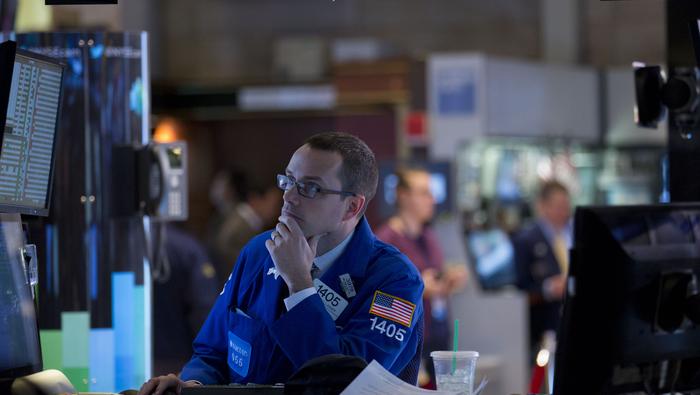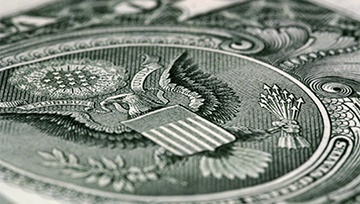Talking Points:
- Despite other Dollar-based majors earning bullish breaks, EUR/USD refuses to give way with Euro holding its own multi-year highs
- The ECB rate decision is unlikely to delivery actual policy change, but has been hard to miss the bank's recent concerns
- If the ECB intends to deflate its currency, this may be their best opportunity to trigger a significant bear trend
What do the DailyFX Analysts expect from the Dollar and Japanese Yen through the 2Q 2018? Download forecasts for these assets and more with technical and fundamental insight from the DailyFX Trading Guides page.
The ECB Has a Key Opportunity
If the European Central Bank (ECB) is genuinely concerned about the economic and financial implications resulting from the level of their local currency, they have a remarkable opportunity to affect change. Thursday, the central bank will weigh and announce its monetary policy proclaimations. This is highly unlikely to end in any traditional change to either rates or the exceptional stimulus program, but the event can still be positioned such that it triggers a lasting bear trend for the Euro...and indirectly unleash the rally for the US Dollar. We have seen evidence of certain ECB members voicing concern over financial conditions, economic health, capital market levels and other 'normal' issues for months. Recently, however, the focus has subtly turned to the currency. There have been a few explicit remarks afforded to the Euro and its relationship to fundamentals sprinkled in over the years, but there hasn't been a reason for concern in action nor any material follow up by the group. Yet, after the 2017 rally and its refusal to deflate, recent unofficial suggestions that the central bank is considering a more dovish shift and President Draghi's comments that the growth cycle may have peaked suggest a level of intent may be building.
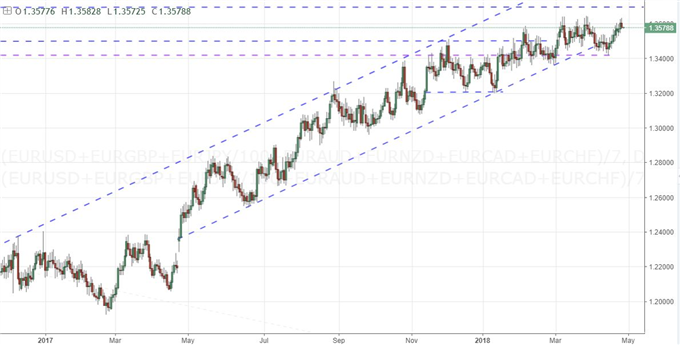
We Have Seen this Scenario Before
Before you write off the idea that a major central bank would ever deign to try and alter the bearing of their currency, recognize that this is not at all uncommong. The Bank of Japan was very explicit in its intent to lower the Japanese Yen as a trade-dependent economy back in the early part of this decade. The group actually sold Yen at the behest of the Finance Ministry and they went so far as to state they were adopting policy in an aim to lower the currency. After a G7 warning, they switched their stated objective to inflation, but it is clear that the intent of their open-ended QE program is not just to capture the unicorn of 2.0 percent Japanese inflation. More recent, benign and consistent is the 'jawboning' that a range of central banks have employed. The RBA, RBNZ and BoC at different times have tried to talk down their respective currencies saying they were higher they their fundamentals warranted. Not particularly effective. What was effect was the ECB's own actions in 2014. They explicitely connected a threat of more easing to an exchange rate for EUR/USD (1.4000). The warning and subsequent impliment of policy earned an approximate 3,500-pip drop from the benchmark pair.
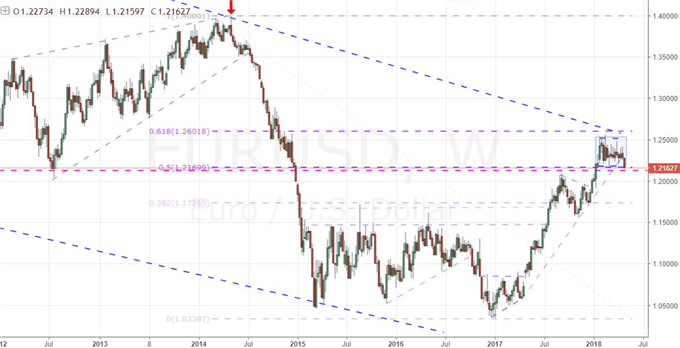
EUR/USD Is the Reason for So Much Euro Potential
Having lowered interest rates to near zero (deposits to negative) and ballooned their balance sheet with a massive QE program, the ECB has unleashed the bulk of its resources to render progress on growth and inflation. Neither has taken in the kind of capacity we would expect given the extent of their efforts - though this is true of nearly all major central banks. They are still struggling to create an economic and financial buffer to not only encourage expansion but to safeguard the region to any future shocks. The addition of the high Euro only compounds issues that they do not need. Subtle efforts to at least find relief on the Euro have failed these past years, but now they have their best opportunity since 2014. They may not have the tools to unleash a torrent of liquidity, but the market seems to be standing on a cliff and only requiring a modest shove. EUR/USD has consolidated for three months and is weighing heavily on support heaidng into this meeting. The Greenback has actually won technical breakouts on a number of its crosses, it just seems hung up on this paritcularly important pair. With the properly worded threat or insinuation, they could earn the technical break, afford momentum by reviving monetary policy disparity and triggering other latent fundamental themes.
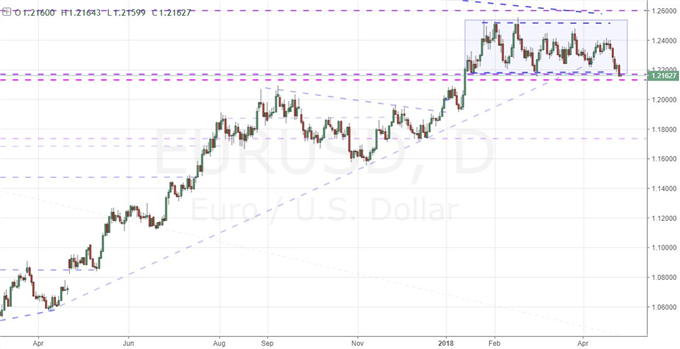
What Plan of Attack the ECB Can Employee...If It Wants
Given that the ECB's current interest rate is effectively zero and expanding the stimulus program would result in more cost than benefit at this point, there are serious limitations on what the group can actually do in order to push the FX market. The officials at the European authority (and really the world over) certainly appreciate that they have very little ammunition to fight any future financial crises or economic downturns given how stretched they all already are. Yet, the circumstances are such that such a dramatic move may not be necessary. If Draghi and his peers recognize that, they may instead use finesse to render results. If the group makes clear that they will not fulfill the market's speculative appetite for the eventual first move to normalize its extreme monetary policy, it can exert pressure. They can do this by deferring the taper timeline or outright pushing it back. They can also emphasize that the gap between the end of QE to the first rate hike is much longer than is currently projected (with reference to market forecasts in financial markets). If they really intend to win this market impact, they may attack it on multiple fronts to be certain of influence. We discuss the ECB rate decision and why it is so critical to the Euro and Dollar in today's Quick Take Strategy Video.
To receive John’s analysis directly via email, please SIGN UP HERE




